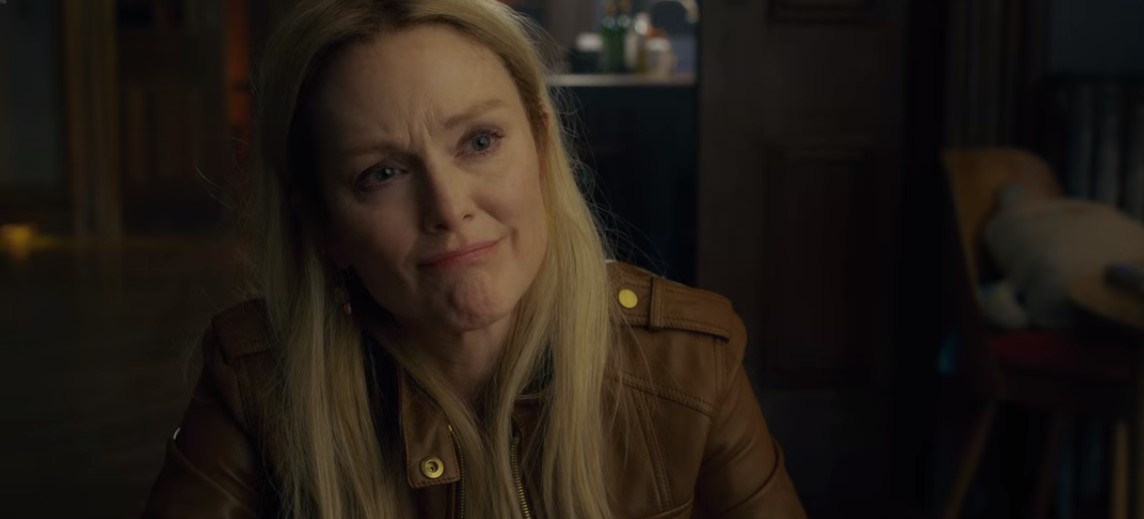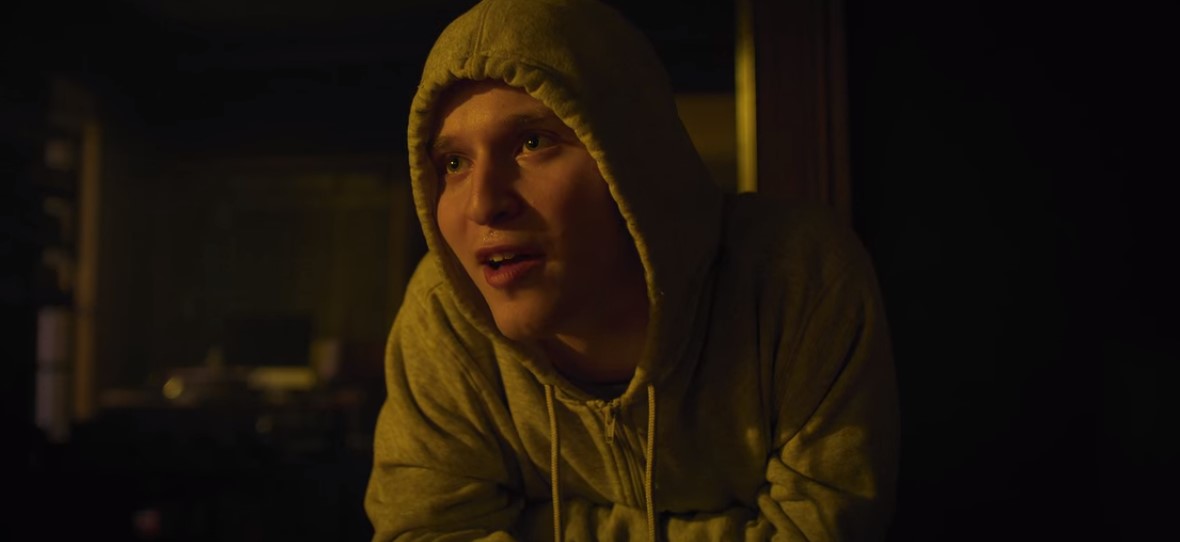Directed by well-known English filmmaker Joe Wright, ‘The Woman in the Window’ is one of those psychological thriller films that builds its narrative block by block through suggestive references and visual cues. The narrative follows Anna Fox, a middle-aged child psychologist who suffers from an anxiety disorder due to a past tragedy. In the present, she tries to overcome her condition as she befriends the next-door neighbor. Following the mysterious death of the neighbor, Anna soon gets sucked into a web of confusion and misery as her narrative does not match the consensus.
In a happy marriage of Alfred Hitchcock’s storytelling technique with David Fincher’s characterization and set designing, the film succeeds to create an aura of gripping tension within its limited cinematic scope. A splendid ensemble of a cast led by the personable Amy Adams, meditative cinematography with moments of lucid splendor, lighting that makes the shadows more prominent, and a foreboding score – all add to the suspense and tension that bursts out at the end of the film. In the end, the killer’s identity is revealed, and Anna is left to fight the unexpected evil. In the end, the narrative is wrapped up quite neatly, but a million-dollar question still bugs the mind of the audience. SPOILERS AHEAD.
Was Ethan a Serial Killer in the Making?
At the beginning of the film, we meet Dr. Anna Fox, a psychologist who is tormented by her own mental disturbances stemming from an unresolved moment in the past. She suffers from debilitating agoraphobia, an anxiety disorder that compels her to choose a reclusive lifestyle. However, as a middle-aged loner, she is not without hobbies. Anna’s favorite pastimes include peeping into her neighbors’ lives through a camera lens, if not watching movies. It seems that Anna resorts to other realities to divert her mind from her past burdens.
The story begins with the arrival of the Russell family in the apartment overlooking Anna’s house, and Anna’s camera lens finds occupation in pursuing the lives of the family – the patriarch Alistair, his wife Jane, and their son Ethan. After a brief encounter with each of the family members, Anna comes to witness the murder of who she thinks to be Jane, which sets the story in motion.

If you have seen the film till the penultimate moment, you would have guessed the identity of the killer, who is none other than the friendly neighborhood Ethan! Who on earth would have guessed that the naïve looking boy is a psychopath and a serial killer in the making? But if you look closely, the signs are clear from the beginning. He possesses many social and psychological characteristics that are seen in serial killers in their formative stages.
In the early encounter at Anna’s house, Ethan seems to be a social kid that has come to make acquaintance with the neighbor with an offering. Nothing is wrong with that. However, a remark from Ethan changes the perspective – he says that he sees Anna from his apartment, and goes on to ask Anna whether she sees him or not. Serial killers tend to have a penchant for voyeurism from an early age, and this is strike one. Moreover, serial killers usually have higher than usual intelligence, and Ethan seems to be quite an intelligent kid who is curious about Anna’s line of work. Ethan is also subjected to verbal and physical abuse from his tyrant father, which is another facet that could attribute to the making of a serial killer.
But what gives away Ethan’s identity as a serial killer is Ethan’s hatred for his mother. More or less all serial killers have mommy issues, whether it be overbearing and controlling mothers or the glaring absence of them. While pattern killer Andre Crawdford’s mother left him at a foster home, Michael Bruce Ross’s mother abandoned the family and was later brought under penalization. In the film, Ethan’s birth mother Katie also abandoned the family to go to a meth commune while pregnant, and Abigail found her after searching for two years. Following the discovery of Katie and the child, Abigail separates from her, she goes to an institution while Abigail gets custody of his child. The character of Ethan clearly suffered from a lack of maternal care in his formative years, and guided by the voice of the oppressive father, he grew up to hate his mother. The hatred grew and grew until the moment in the film where Ethan kills his mother.
Read More: Films Based On Psychopaths


You must be logged in to post a comment.